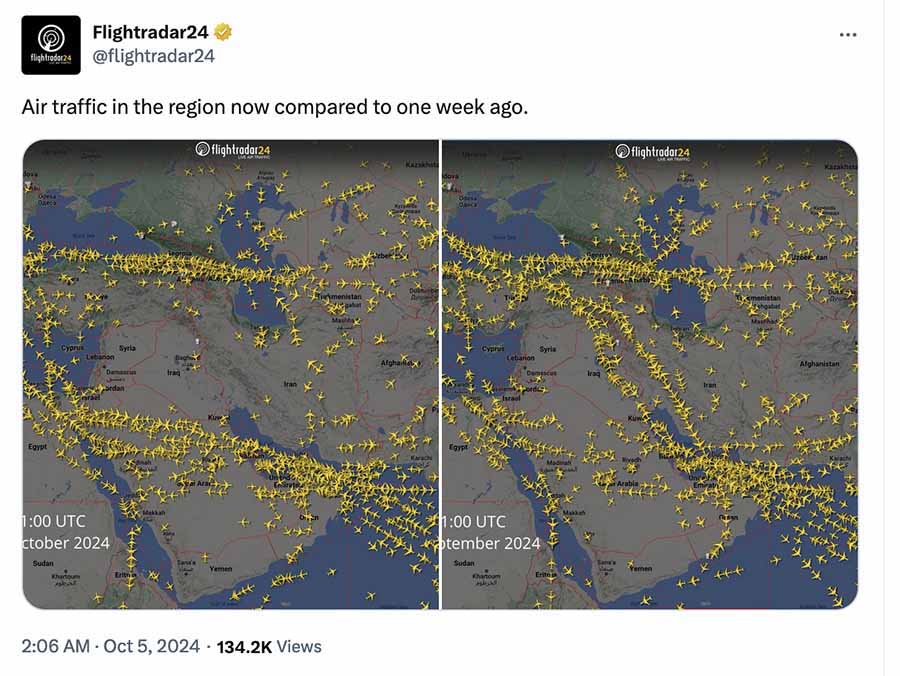
Iranian airspace has reopened after closure caused by the escalation of Israel’s wars in the middle east.
Iran’s airspace is one of the most frequently used by airlines travelling between Europe and India or Southeast Asia.
Airlines such as Air France, Emirates, Lufthansa, Ryanair and Turkish have extended the cancellation of flights to Tel Aviv, Beirut and Jordan for periods ranging from October until January.
The attacks on Thursday prompted 81 flights to be diverted by 16 airlines, significantly extending travel times for passengers. Consequent rerouting will prolong flight times and add to fuel costs.
Middle Eastern airlines were most affected, with Qatar Airways and Emirates diverting the highest number of flights, while Istanbul airport saw 19 flights disrupted.
European carriers such as Lufthansa and British Airways also rerouted flights, with journeys extending up to eight hours as they avoided Iranian airspace.
Ongoing tensions and airspace closures in the region are expected to continue affecting flight paths and operational costs for airlines, similar to disruptions seen after the Russia-Ukraine conflict in 2022.
Michael O’Leary told a press conference in Dublin: We’re suspending our flights to Tel Aviv in Israel until the end of December, but that’s likely to run out now, I think until the end—probably run out to the end of March. We have four flights a week to Amman in Jordan, but because the airspace is closed, we’re now canceling those flights for about another five or six weeks.
For four weeks—the airspace is closed. We’ve communicated that with all those passengers. I think we do about four flights a week to Amman: two from Madrid and two from Charleroi, Belgium. It’s very disruptive; we apologise, but there’s nothing we can do. We can’t take the risk of flying aircraft, passengers, or crews into that area over the Middle East, and we hope there would be an early resolution of that situation in the Middle East—there will be some kind of ceasefire and return of hostages.
Flihgts are suspended to the end of January, and we’re probably going to roll that out to the end of March. It’s the end of the winter schedule. It doesn’t seem to be any point in trying to hold them there now. You know, if there’s a ceasefire, we will restart flights to Tel Aviv pretty quickly, and we will also restart flights to Amman and Aqaba as well as soon as possible. Jordan has been one of the fastest-growing winter sun destinations for us in the last couple of years, so we’re very keen to go back to flying to both Tel Aviv and Jordan.




